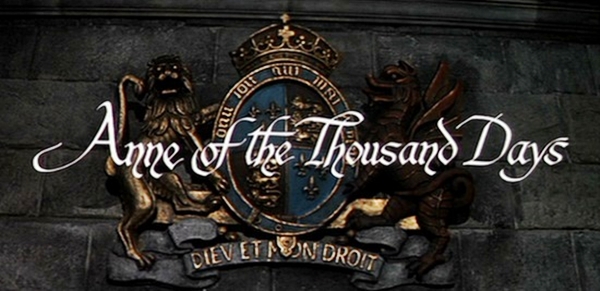

![]()
![]()
|
DOING IT TO YOURSELF After Who’s Afraid of Virginia Woolf? Richard Burton pretty much stopped being an actor; having brief burnished moments since, particularly in The Taming of the Shrew, The Gathering Storm and the neglected Wagner, he mostly sneered his way through roles—over-empathic in scene after scene, hurling invective, looking like the self-hating male virago no one wanted to pay to see. He became his own worst nightmare—the fifth and sixth Mr. Liz Taylor. Fortifying himself with lethal liquids to numb the humiliation of having succumbed to consort, Burton’s pain is so evident in Anne of the Thousand Days that it’s equally painful for his admirers: as hard as we want to, we can’t move beyond how he’s lost the sense of pleasure in acting. In light of his celebrity, he’s far from an inappropriate choice to play Henry VIII—with a more enthusiastic, demanding director than Charles Jarrott, he might have been to the movie what Keith Michell is to the miniseries The Six Wives of Henry VIII. But Burton doesn’t inhabit the king; by his own admission he’s slogging through one hangover after another and the bloated face confirms it. (Producer Hal Wallis, hoping for another Becket success, must have been alarmed by his star’s appearance because shortly into the movie, his eyes have been Visined and his teeth look bleached.) In his private notes published in Melvyn Bragg’s Richard Burton: A Life, he writes: “Why am I doing a film I so patently am bored by? Why do I allow myself to be talked into doing the mediocre? I cannot even bring myself to read the script, let alone learn it.” Threats of lawsuits aside, Burton’s not off the hook: penning self-mockingly of his power to garner large salaries, percentages and perks, he apparently never bothered to insist on improvements—factuality, sharper dialogue and, the easiest, self-respect. Genevičve Bujold’s Anne is a variation of Salome, trippingly defiant and contemptuous, daring incitement to her doom. You like it a lot when she provokes Henry to slap her; no mystery why she didn’t get much sympathy later at the Tower. John Colicos’s Cromwell has a great encompassing line about Anne’s pre-marriage bewitchery: “She almost reigns, she entirely rules.” The screenplay, based on Maxwell Anderson’s play, neglects Anne’s key success in nabbing Henry after seven years of fondling: losing his battle with the pope to annul his marriage to Catherine of Aragon, Anne was in possession of and handed to Henry scholar William Tyndale’s forbidden-to-read tome The Obedience of a Christian Man* in which he argues a king is above the power of the pope, appealing directly to Henry’s obsession to beget a male heir. This solution, plus numerous historic interferences of popes down the line, motivated Henry to declare himself the head of the Church of England and marry Anne. (As with the queen, Tyndale would likewise feel the royal wrath when, in his Practice of Prelates, he vehemently objected to the annulment to Catherine and was, at the behest of Henry, charged with and found guilty of heresy and executed at Vilvoorde, Belgium.) The film script is also filled with customary liberties. Anne probably wasn’t publicly jeered when she wed Henry (in two separate but private ceremonies) or when made Queen. What is more likely is she received tepid reactions from or faced the backsides of the crowds, with only a greedy and fleeting aristocracy cheering Anne to lead the charge for Cardinal Wolsey’s downfall in order to sack his wealth. The orchestrated jeering, from a gullible public and a reading-the-conspiratorial-tea-leaves gentry, began when Anne, unable to deliver a son, was arrested for adultery and plotting to kill the king. Henry was not present at the court judging the concoction of Anne’s treason. Out of what one chronologist calls “macabre concern,” Henry decreed Anne not be burned at the stake but swiftly beheaded after she addressed the witnesses. (When the imported executioner lifted her chopped head, some watchers ghoulishly claimed her lips were still moving.) With Irene Papas, Michael Horden. Original running time 145 minutes. Filmed in Panavision, with 70mm blowup. (Sans hardticket in Chicago, opened at select metropolitan theatres.) Oscar for best costumes (Margaret Furse); nominated for best film, actor, actress, supporting actor (Anthony Quayle), screenplay, cinematography, art direction, sound, originalmusical score. *William Tyndale’s The Obedience of a Christian Man is mentioned in Netflix’s 2022 series Blood, Sex & Royalty. 
Text COPYRIGHT © 2002 RALPH BENNER (Revised 5/2024) All Rights Reserved. |